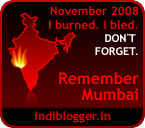(previous post - Memories - Saudi Part I)
So, that's where I grew up, initially. Now, when it came to school, I attended International Indian School, Dammam. Now, the school only started in 1982 and when I started attending it in 1985, it was a wee school with a few hundred students and a few dozen teachers. Today, this behemoth is home to 14,500 students and over 600 teachers. I believe, it is the biggest school in the Gulf.
 By the time I left the school in 1997, it was now located in the above building. The beauty of schools in Saudi is that they are all segregated by sex. If you have 7000 boys on one side of the campus, you have 7000 girls on the other side, both seperated by high walls and fraternizing across the wall was not only frowned upon but was punishable.
By the time I left the school in 1997, it was now located in the above building. The beauty of schools in Saudi is that they are all segregated by sex. If you have 7000 boys on one side of the campus, you have 7000 girls on the other side, both seperated by high walls and fraternizing across the wall was not only frowned upon but was punishable.
My dad served on the Managing Committee of the school, which was chosen by the Indian Ambassador to Saudi at the time, Mr.Hamid Ansari (who is now the Vice-President of India). So, this made school both extra-enjoyable and extra-tricky for me. I could always rely on things getting done two minutes before I wanted them but at the same time, if I ever got in to trouble, then Dad would also be aware two minutes before the deed was done. I made some great friends in school, ALL of whom are married now, with kids, which is scary but that is another topic for another day.
We used to spend our weekends (Thursday and Friday in the Middle East) visiting Dammam and Khobar and the only thing and I repeat, the only thing we had to do as kids was visit malls or play sports. Am I talking fun malls with movie theaters and crazyness? Nope, just sprawling malls where you'd walk around with friends (movie halls don't exist in the Kingdom because they're "un-Islamic") and maybe, if you're lucky, spot a cute girl. Now, anywhere else in the world, this would mean that the girl is actually cute, but in Saudi, where ALL the women wear Burqas (infernal cloths that cover them from head to toe with an eye slit to look through) the phrase takes a new meaning.
So, when we spot girls, they had to have exquisite eyes or great hands. And you're not allowed to stare either, cause then you'll be rushed by other Saudi males and you will be summarily beaten for "dishonoring a female". Soo, all my friends were AWESOME at sports. I, myself, wasn't great but I could hold my own.
Saudi is a strange land with archaic customs that were old-fashioned a hundred years ago. But yet, they remain. No one dares say anything for fear of repercussions from the all powerful Mutawwas. I'd have a lot to say but Wiki summarizes it better:
"The Mutaween in Saudi Arabia are tasked with enforcing Sharia as defined by the government, specifically by the Committee for the Propagation of Virtue and the Prevention of Vice (CPVPV). The Mutaween of the CPVPV consists of "more than 3,500 officers in addition to thousands of volunteers...often accompanied by a police escort." They have the power to arrest unrelated males and females caught socializing, anyone engaged in homosexual behavior or prostitution; to enforce Islamic dress-codes, and store closures during the prayer time. They enforce Muslim dietary laws, prohibit the consumption or sale of alcoholic beverages and pork, and seize banned consumer products and media regarded as un-Islamic (such as CDs/DVDs of various Western musical groups, television shows and film). Additionally, they actively prevent the practice or proselytizing of other religions within Saudi Arabia, where they are banned."

I'm feeling quite nostalgic today so I thought I'd revisit some of the places I've been to in the past, through pictures and memories.
I was born in India waaay back in 1980 and moved quite quickly to Saudi Arabia. My parents were doctors and they were working there so I spent the next 17 years of my life in the sun-soaked country where temperatures reach 55 degrees Celsius (that's 131 Fahrenheit, for those of you who are metrically challenged). I had a good childhood. I spent the first few years in a place called Al-Oyoun in Saudi's Eastern Province. It's a sleepy little town (oasis) about 60kms inland from the sea. It's near the populous Eastern Province city of Hofuf. It was 120 kms back and forth to school everyday which isn't as bad as it sounds when cars can speed at 130-140 kmph.
It's not abnormal to see sword-wielding Bedouins in Oyoun's quiet streets as the entire area is still unofficially under the rule of the powerful and proud Shi'ite Muslim tribes in the predominantly Sunni Kingdom.
"In classic Arabic, Ahsa means the sound of water underground. It has one of the largest oases in the world with Date Palms of the best in the world, the oasis is located about 60 km inland from the Persian Gulf. All Urban areas are located in the traditional oasis of Al-Ahsa. In addition to the oasis, the county also includes the giant Empty Quarter desert, making it the largest county in Saudi Arabia in terms of area. The Empty Quarter has the world's largest oil fields and connects Saudi Arabia to Qatar, the UAE, and Oman."
The gun and sword laws aren't really enforced because, it is rumored, that these tribes can ride out and set fire to these fields at a whim and the government would be powerless to stop them.
So, as I was saying, going to school was an adventure. It's a beautiful drive, too. When you're driving, you have nothing but the highway in front of you and the desert in every direction. The first 5 years of my life, I spent at least 2-3 hours a day looking out at the sands and dunes roll by and it seemed like they were frozen relics of a time when the country was at the mercy of the elements and humans hadn't yet found the courage to wander the unforgiving landscape or disturb it, lest they awake some primeval beast from that deceptively quiet and beautiful scene. But, I remember feeling safe despite there being nothing but openness in every direction. I felt like nothing could disturb me there and it always seemed a welcome place. Once in a while, I'd see a herd of camel roll by and they seemed not to notice us and our trespass.
After a few years, we moved to Tarout. Tarout is a little island just off the coast of Saudi. It connects to the coastal town of Qatif which is one of the largest oil-producing cities in the world. In Tarout, there was a village called Sanabes and this is where I spent the next 8 years of my life. It was gorgeous. We lived about a few hundred meters off the beach and yes, it was palm-lined and the high-tide used to bring the water to a point where it almost touched the road that ran the perimeter of the island.
We used to go for walks along the beach at night. If you notice on the map, the entire central part of the island shows no habitation. That's because it was nothing but date palms and stud farms. Here they used to breed championship Arabian stallions the way they did way back in the day and I'm sure these animals never went for less than a few $100,000. And I could see the trainers running these horses up and down the beach at times, training them, exercising them. Even as a kid, I knew that I was in a special place. From our window on the 4th floor, we used to be able to look out at all of Sanabes and then right out to sea. We could see the three oil platforms of Ras Tanura and these massive tankers pulling up beside them.
This place is even more like the land that time forgot than the rest of Saudi. Saudi is a paradoxical place. It has rich, luxurious cities with everything in the world that oil-money can buy but it is also a thousand villages, with houses built of mud and people in their thobs and burquas selling dates and drinking black tea on carpets on dusty roads. I lived for the better half of my childhood amongst these people. The nomads and the date-sellers.
"Tarut or Tarout means goodness and beauty in the Semitic languages. Additionally, the town’s name is recorded as "TARU" in historical Chinese texts and "Ashtarut " in Arabic history. Today, however, most of the new researchers argue that the correct name is "Ashtarut " because the Canaanites and Phoenicians, who originally lived there, idolized the beauty of the town and called it Ashtarut.
We cannot separate the history of Tarut Island from the Eastern Arabian Peninsula's history. Tarut Island has survived for thousands of years and its antiquities prove that it was inhabited since the Stone Age, approximately 5000 B.C. It died several civilizations ago and was part of many Empires and countries. Some of them were before Christ, such as Dilmun, the Akkadian country, the Assyrian country, and the Persian Empire. Others were after Christ such as the Persian Empire, the Islamic country, the Portuguese Empire, and the Ottoman Empire. Now, Tarut Island belongs to Qatif city in the Eastern province of Saudi Arabia. It was a place of economic migration because of its important strategic location and it was a trade center between Indian contraries, the Arabian Peninsula and Iraq. In addition, it has a lot of natural resources, including pearl fisheries and date farms."
In the heart of Tarout, is this massive sand fortress that is, I believe, over 400 years old. I used to see it everyday passing by it, as a kid and I remember thinking that it still looked impregnable just like it must have when it was first built.
(to be continued)
Followers
Movies I've Watched Recently
- 9
- Legion
- How to Lose Friends & Alienate People
Books I've Read Recently
Blogs I like
-
-
On Art9 years ago
-
-
-
-
Dear Life by Alice Munro11 years ago
-
tête-à-tête
1. Private conversation; familiar interview or conference of two persons.
2. A short sofa intended to accommodate two persons.
3. Private; confidential; familiar.
adv. 1. Face to face; privately or confidentially; familiarly.























